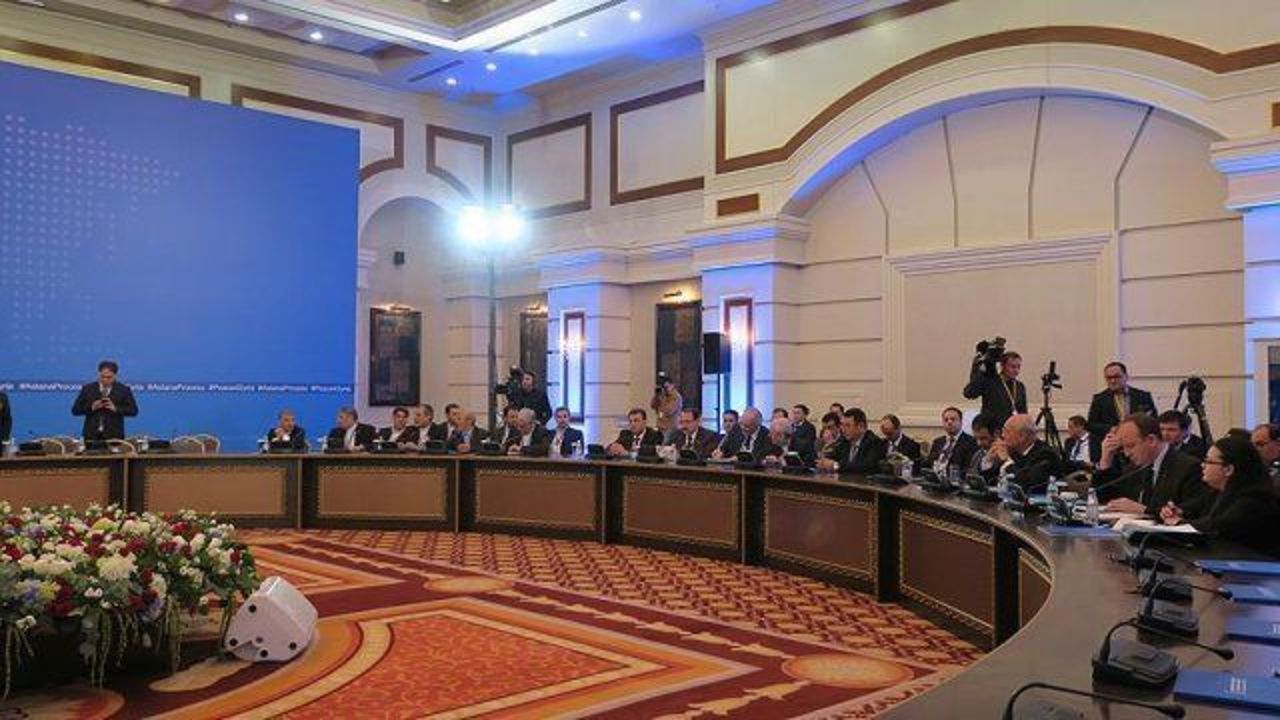Turkey, Russia, Iran agree to ensure Syria cease-fire
Turkey, Russia and Iran will establish a trilateral mechanism to observe and ensure full compliance with the cease-fire in Syria, Kazakhstan’s foreign minister said Tuesday.

Reading a joint statement from Turkey, Russia and Iran, Kairat Abdrakhmanov said the three brokers of negotiations in Kazakh capital Astana had expressed their conviction that there was no possibility of a military solution to the Syrian conflict, only a political process based on the UN Security Council’s 2015 road map.
The three had decided to “establish a trilateral mechanism to observe and ensure full compliance with the cease-fire, prevent any provocations and determine all modalities of the cease-fire,” Abdrakhmanov told a news conference following the final day of talks.
Turkey, which backs the opposition, and Russia and Iran, who support the Bashar al-Assad regime, will use their influence to minimize cease-fire violations and ensure unhindered humanitarian access to the country, the minister said.
The trio also said they would join together to combat against Daesh and Jabhat Fateh al-Sham, formerly known as al-Nusra Front. Both are excluded from the cease-fire and the talks.
Mohamed Alloush, head of the opposition delegation, called on all parties to abide by the cease-fire and asked for the UN to impose sanctions on any found to have transgressed the truce.
“Our aim is to reach a sustainable and real political solution in Syria,” he told reporters following the talks. “We need to remove foreign terrorist groups from the country to make the cease-fire permanent.”
He further demanded the prosecution of Assad and “all of those who shed blood in Syria” to secure a political solution.
Turkish Foreign Minister Mevlut Cavusoglu welcomed the first face-to-face meeting between regime and opposition figures.
“Having the regime and the opposition highlighting a political solution during the talks as well as the declaration stressing that there is no military solution is very critical for the future of Syria,” he told reporters before a business forum in Mozambique’s capital Maputo.
Commitment to Syrian sovereignty
“We have always sided with the political solution.”
The importance of Syria’s territorial integrity had been highlighted in the joint declaration, he said.
The minister also revealed that cease-fire monitoring centers had been established in Ankara and Moscow.
“From now on, it is important that Iran plays an active role too, for the future of the cease-fire,” he added.
Another opposition delegate, Osama Abu Zaid, said their group had made proposals to Russia regarding the cease-fire enforcement mechanism.
Abdrakhmanov said Turkey, Russia and Iran reaffirmed their commitment to Syria's sovereignty and territorial integrity.
All three had stressed the “urgent necessity to step up efforts to jump-start the negotiation process in accordance with the UN Security Council resolution”.
Abdrakhmanov said the meeting in Astana was an “effective” platform for direct dialogue between the Syrian government and the opposition.
The next round of negotiations will be held between the government and opposition in Geneva on Feb. 8, he added.
The minister also urged the international community to support the political process by swiftly implementing all steps agreed in the resolution.
The Astana talks, which focused on extending the cease-fire that came into effect in Syria on Dec. 30, 2016, included representatives of the regime, armed opposition groups, Russia, Turkey, Iran as well as UN special envoy Staffan de Mistura and U.S. ambassador to Kazakhstan, George Krol.
Syria’s UN Ambassador Bashar al-Jaafari headed the regime team while the Turkish delegation was led by Foreign Ministry Deputy Undersecretary Sedat Onal. Special Envoy Alexander Lavrentiev and Deputy Foreign Minister Mikhail Bogdanov led the Russian team. Iranian Deputy Foreign Minister Hossein Jaberi Ansari also participated.
Anadolu Agency







